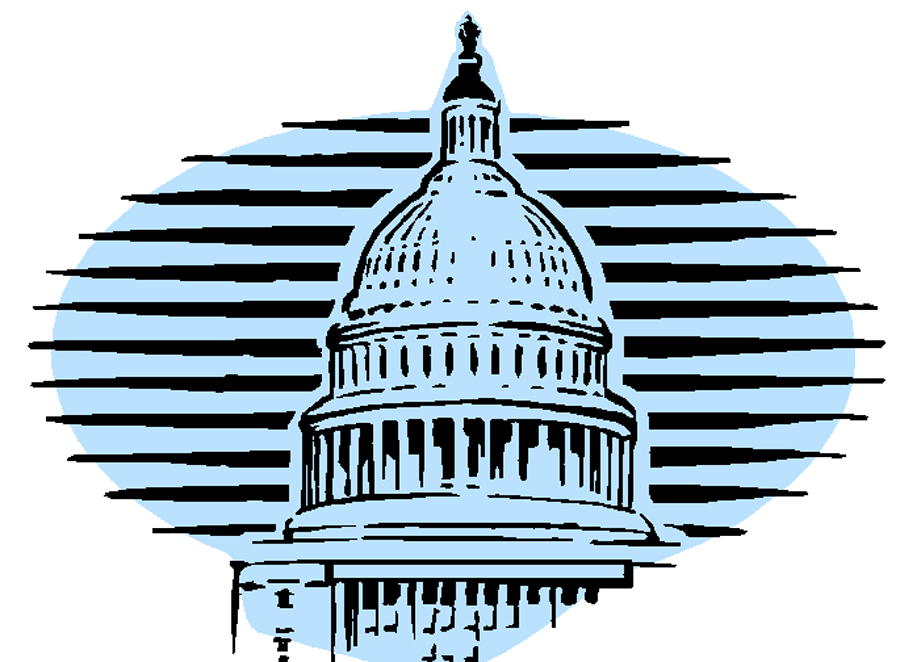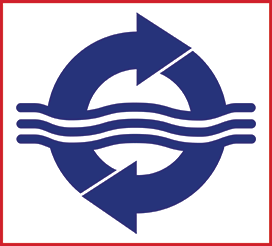
GOVERNMENT AGENCY NEWS AND ALERTS
The Maritime Exchange is the primary source for timely news and regulatory updates that affect maritime transportation and the local industry. From policy decisions, proposed and final regulations, and navigation and safety alerts to automation guidance, grant opportunities, and much more, the Exchange keeps members provides critical operational and regulatory intelligence.
ANIMAL & PLANT HEALTH INSPECTION SERVICE
APHIS plays a vital role in ensuring the flow of agricultural trade by certifying that all imported agricultural products shipped to the U.S. meet the agency's entry requirements to exclude pests and diseases. These efforts support the overall mission of the USDA, which is to protect and promote food, agriculture, natural resources, and related issues. Because of the huge volumes of agricultural products moving through the Delaware River, the Exchange closely follows APHIS regulations and speaks out when needed to protect this important trade.
RESOURCES:
APHIS News & Updates
APHIS Important Notices
ARMY CORPS OF ENGINEERS
The U.S. Army Corps of Engineers is a major Army command made up of some 34,600 civilian and 650 military personnel, making it the world's largest public engineering, design, and construction management agency. Established in 1866, the Corps Philadelphia District manages the water resources of the Delaware River Basin and of the Atlantic Coast from New Jersey’s Manasquan Inlet to the southern boundary of Delaware. The Exchange works with Philadelphia District personnel to get in front of problems that may occur with channel maintenance dredging, dredged material management—including helping identify beneficial reuse projects—and resource availability.
RESOURCES
CORPS News/Updates
BUREAU OF OCEAN ENERGY MANAGEMENT
An agency of the Department of the Interior, BOEM is responsible to oversee the safe and environmentally responsible development of energy and mineral resources on the Outer Continental Shelf. The Maritime Exchange supports renewable energy initiatives and applauds BOEM for its efforts to engage regional public- and private-sector maritime stakeholders as it considers new policies and seeks to implement the potential leasing for wind power in the Renewable Energy Framework area. Equally important, however, is the need to ensure navigational safety throughout offshore wind farms.
BOEM News / Updates
U.S. COAST GUARD
Since 1790, the Coast Guard has safeguarded our nation's maritime interests. Its missions include, among others, port state control, maritime security, search and rescue, and environmental stewardship. Sector Delaware Bay is responsible for waterways in portions of Pennsylvania and New Jersey, as well as the entire state of Delaware. Coast Guard personnel work closely with the Exchange and its members to meet the shared goal of keeping the waterway safe for navigation.
Resources
USCG Navigation, Security and Safety Notices
USCG Regulations, Rules, and Policies
U.S. COAST GUARD HURRICANE & ICE CONDITION PLANS AND ALERTS
Hurricanes: The Coast Guard sets Hurricane Seasonal Alerts annually from June 1 through November 30, unless otherwise disestablished. All vessels, facilities, and marinas are asked to take adequate precautions and review the U.S. Coast Guard Sector Delaware Bay Port Hurricane Contingency Plan and their individual Heavy Weather Plans.
ICE Conditions: Mariners are asked to report observed ice conditions to the Sector Delaware Bay Command Center on VHF Channel 16 or call 215-271-4807.
USCG Hurricane Plans & Alerts
USCG Ice Alerts
The United States Department of Commerce is the Cabinet department concerned with promoting economic growth. The mission of the department is to promote job creation and improved living standards for all Americans by creating an infrastructure that promotes economic growth, technological competitiveness, and sustainable development. Among its tasks are gathering economic and demographic data for business and government decision-making, and helping to set industrial standards.
RESOURCES
Commerce News / Updates
CUSTOMS AND BORDER PROTECTION
CBP is a law enforcement agency of the U.S. Department of Homeland Security charged with regulating and facilitating international trade, collecting import duties, and enforcing hundreds of U.S. regulations, including trade, drug, and immigration laws. Officers assigned to the Area Port of Philadelphia conduct enforcement and inspectional operations at seaports in Pennsylvania, Southern New Jersey, and Delaware. Local CBP engages with the Exchange daily to ensure the most efficient vessel, cargo, and crew processing available. And, the Exchange works with CBP Headquarters personnel in Washington to ensure industry needs are considered in the development of new policies and procedures.
RESOURCES
CBP Regulations, Policies, Advisories, and News
CBP Automated Commercial Environment
ENVIRONMENTAL PROTECTION AGENCY
The mission of the Environmental Protection Agency is to protect human health and the environment, to ensure that enforcement of recent federal laws are fair and effective, and that environmental protection is an integral consideration in U.S. policies concerning natural resources, human health, economic growth, energy, transportation, agriculture, industry, and international trade. To the extent EPA policies touch general cargo facilities, the Exchange and EPA have worked collaboratively on worker safety programs.
RESOURCES
EPA News / Updates
FEDERAL EMERGENCY MANAGEMENT AGENCY
Housed under the Department of Homeland Security, FEMA coordinates the federal government's role in preparing for, preventing, mitigating the effects of, responding to, and recovering from all domestic disasters, whether natural or man-made, including acts of terror. Of importance to Exchange members, FEMA administers the Port Security Grant Program, which has funded hundreds of millions of dollars in security projects in our nation’s seaports since 2002. The Exchange served as the local fiduciary agent for the port grant program from 2007-2015 and continues to assist members with their applications and serve on the grant review committee organized by Coast Guard Sector Delaware Bay.
RESOURCES
PSGP Grant Library / News
FOOD AND DRUG ADMINISTRATION
FDA protects the public health by assuring the safety, efficacy, and security of human and veterinary drugs, biological products, medical devices, our nation’s food supply, cosmetics, and products that emit radiation. It is also charged with advancing public health by helping to speed innovations that make medicines and foods more effective, safer, and more affordable. FDA has jurisdiction over certain imported food and medical cargos, and it works closely with the Exchange and its members to facilitate trade.
RESOURCES
FDA News / Updates
HOMELAND SECURITY
The U.S. Department of Homeland Security is a cabinet department with the primary missions of preventing terrorism and enhancing security, managing our borders, administering immigration laws, securing cyberspace, and ensuring disaster resilience. Its influence on maritime trade and transportation is widespread.
RESOURCES
MARITIME ADMINISTRATION
The U.S. Maritime Administration, an agency within the U.S. Department of Transportation, promotes the use of maritime highways, their seamless integration with other transportation modes, and the viability of the U.S. merchant marine. MARAD works in many areas involving ships and shipping, shipbuilding, port and vessel operations, national security, the environment, and safety. MARAD also administers several grants that directly benefit the maritime industry including the Port Infrastructure Development Grant, the U.S. Marine Highway Program, and small shipyard grants.
RESOURCES
MARAD News/Updates
NATIONAL OCEANIC AND ATMOSPHERIC ADMINISTRATION/NATIONAL OCEAN SERVICE
NOAA is housed within the Department of Commerce and focuses on the oceans and atmosphere. On the maritime side, NOAA provides forecasts, storm warnings, climate monitoring, fisheries management, coastal restoration, and supports marine commerce. It also develops navigation charts, conserves and manages coastal and marine ecosystems and resources, and conducts research to improve understanding and stewardship of the environment. The Exchange partnered with the National Ocean Service to develop and install the Delaware Bay PORTS® (Physical Oceanographic Real-Time System) that improves maritime safety and efficiency and coastal resource management through the integration of real-time environmental observations, forecasts, and other geospatial information.
RESOURCES
NOAA News / Updates
TRANSPORTATION SECURITY ADMINISTRATION
TRANSPORTATION WORKER IDENTIFICATION CREDENTIAL (TWIC)
The Transportation Security Administration was formed immediately following September 11, 2001 and is responsible for securing the nation's transportation systems. The Transportation Worker Identification Credential (TWIC) program is a TSA and Coast Guard initiative with sweeping ramifications for maritime businesses. The Exchange served as the key pilot program participant for the initial test starting in 2002 and worked closely with TSA and Coast Guard on the development of TWIC-related policies.
